afterLoad (456.16KB) (478μs)
afterInitialise (1.27MB) (72.71ms)
afterRoute (840.55KB) (33.77ms)
beforeRenderComponent com_tags (20.62KB) (225μs)
afterRenderComponent com_tags (1.41MB) (229ms)
afterDispatch (27.47KB) (14.41ms)
beforeRenderRawModule mod_articles_category (READ MORE...) (440.48KB) (28.2ms)
Before Access::preloadComponents (all components) (50.9KB) (3.43ms)
After Access::preloadComponents (all components) (103.05KB) (11.93ms)
Before Access::getAssetRules (id:8 name:com_content) (840B) (17μs)
After Access::getAssetRules (id:8 name:com_content) (7.05KB) (37μs)
afterRenderRawModule mod_articles_category (READ MORE...) (2.37KB) (393ms)
beforeRenderRawModule mod_custom (BOOST YOUR IMMUNE DEFENSE) (6.45KB) (27μs)
afterRenderRawModule mod_custom (BOOST YOUR IMMUNE DEFENSE) (3.8KB) (188μs)
beforeRenderRawModule mod_tags_popular (Search) (2.36KB) (14μs)
afterRenderRawModule mod_tags_popular (Search) (15.11KB) (447ms)
beforeRenderRawModule mod_custom (Get additionel and more detailed knowledge ) (816B) (31μs)
afterRenderRawModule mod_custom (Get additionel and more detailed knowledge ) (1.55KB) (1.01ms)
beforeRenderRawModule mod_custom (Overview of vitamins, minerals, and essential fatty acids) (768B) (14μs)
afterRenderRawModule mod_custom (Overview of vitamins, minerals, and essential fatty acids) (960B) (24μs)
beforeRenderRawModule mod_custom (Q10 goes by many names) (608B) (10μs)
afterRenderRawModule mod_custom (Q10 goes by many names) (928B) (18μs)
beforeRenderRawModule mod_custom (Check this before you buy a Q10 product) (752B) (15μs)
afterRenderRawModule mod_custom (Check this before you buy a Q10 product) (944B) (19μs)
beforeRenderRawModule mod_custom (Are you taking supplements) (736B) (8μs)
afterRenderRawModule mod_custom (Are you taking supplements) (1.03KB) (17μs)
beforeRenderRawModule mod_custom (Weight loss that works) (736B) (8μs)
afterRenderRawModule mod_custom (Weight loss that works) (1.03KB) (16μs)
beforeRenderRawModule mod_custom (Antiaging) (720B) (7μs)
afterRenderRawModule mod_custom (Antiaging) (912B) (15μs)
beforeRenderRawModule mod_menu (Are you getting enough vitamins and minerals?) (2.5KB) (11μs)
afterRenderRawModule mod_menu (Are you getting enough vitamins and minerals?) (22.39KB) (475μs)
beforeRenderRawModule mod_menu (The key to increased well-being) (736B) (18μs)
afterRenderRawModule mod_menu (The key to increased well-being) (17.83KB) (210μs)
beforeRenderRawModule mod_menu (Did you know.....) (720B) (13μs)
afterRenderRawModule mod_menu (Did you know.....) (25.52KB) (3.37ms)
beforeRenderRawModule mod_custom (Useful Links) (1.06KB) (17μs)
afterRenderRawModule mod_custom (Useful Links) (1.02KB) (42μs)
beforeRenderRawModule mod_custom (Chronic fatigue tied Alan to his bed but Q10 capsules saved him:) (244.28KB) (7.09ms)
afterRenderRawModule mod_custom (Chronic fatigue tied Alan to his bed but Q10 capsules saved him:) (1.06KB) (40μs)
beforeRenderModule mod_custom (Chronic fatigue tied Alan to his bed but Q10 capsules saved him:) (768B) (4μs)
afterRenderModule mod_custom (Chronic fatigue tied Alan to his bed but Q10 capsules saved him:) (1.3KB) (53μs)
beforeRenderRawModule mod_custom (Cholesterol-lowering without side effects:) (368B) (11μs)
afterRenderRawModule mod_custom (Cholesterol-lowering without side effects:) (1.06KB) (22μs)
beforeRenderModule mod_custom (Cholesterol-lowering without side effects:) (752B) (1μs)
afterRenderModule mod_custom (Cholesterol-lowering without side effects:) (1.28KB) (28μs)
beforeRenderModule mod_articles_category (READ MORE...) (20.82KB) (305μs)
afterRenderModule mod_articles_category (READ MORE...) (1.25KB) (34μs)
beforeRenderModule mod_custom (BOOST YOUR IMMUNE DEFENSE) (6.81KB) (12μs)
afterRenderModule mod_custom (BOOST YOUR IMMUNE DEFENSE) (1.28KB) (3.03ms)
beforeRenderModule mod_tags_popular (Search) (1.98KB) (27μs)
afterRenderModule mod_tags_popular (Search) (1.27KB) (47μs)
beforeRenderModule mod_custom (Get additionel and more detailed knowledge ) (1.17KB) (13μs)
afterRenderModule mod_custom (Get additionel and more detailed knowledge ) (1.3KB) (24μs)
beforeRenderModule mod_custom (Overview of vitamins, minerals, and essential fatty acids) (384B) (9μs)
afterRenderModule mod_custom (Overview of vitamins, minerals, and essential fatty acids) (1.31KB) (21μs)
beforeRenderModule mod_custom (Q10 goes by many names) (208B) (8μs)
afterRenderModule mod_custom (Q10 goes by many names) (1.27KB) (19μs)
beforeRenderModule mod_custom (Check this before you buy a Q10 product) (352B) (8μs)
afterRenderModule mod_custom (Check this before you buy a Q10 product) (1.28KB) (18μs)
beforeRenderModule mod_custom (Are you taking supplements) (352B) (8μs)
afterRenderModule mod_custom (Are you taking supplements) (1.28KB) (18μs)
beforeRenderModule mod_custom (Weight loss that works) (336B) (8μs)
afterRenderModule mod_custom (Weight loss that works) (1.27KB) (18μs)
beforeRenderModule mod_custom (Antiaging) (336B) (8μs)
afterRenderModule mod_custom (Antiaging) (3.77KB) (18μs)
beforeRenderModule mod_menu (Are you getting enough vitamins and minerals?) (2.13KB) (10μs)
afterRenderModule mod_menu (Are you getting enough vitamins and minerals?) (1.3KB) (18μs)
beforeRenderModule mod_menu (The key to increased well-being) (352B) (9μs)
afterRenderModule mod_menu (The key to increased well-being) (1.28KB) (17μs)
beforeRenderModule mod_menu (Did you know.....) (336B) (9μs)
afterRenderModule mod_menu (Did you know.....) (1.27KB) (18μs)
beforeRenderModule mod_custom (Useful Links) (1.44KB) (7μs)
afterRenderModule mod_custom (Useful Links) (1.27KB) (18μs)
beforeRenderRawModule mod_menu (Main Menu - English) (29.14KB) (3.73ms)
afterRenderRawModule mod_menu (Main Menu - English) (186.95KB) (4.31ms)
beforeRenderModule mod_menu (Main Menu - English) (720B) (5μs)
afterRenderModule mod_menu (Main Menu - English) (4.86KB) (52μs)
beforeRenderRawModule mod_languages (Sprogskift) (3.94KB) (18μs)
afterRenderRawModule mod_languages (Sprogskift) (27.89KB) (9.2ms)
beforeRenderModule mod_languages (Sprogskift) (720B) (5μs)
afterRenderModule mod_languages (Sprogskift) (5.31KB) (19μs)
beforeRenderRawModule mod_finder () (6.34KB) (10μs)
afterRenderRawModule mod_finder () (128.59KB) (9.26ms)
beforeRenderModule mod_finder () (704B) (5μs)
afterRenderModule mod_finder () (3.29KB) (1.11ms)
beforeRenderRawModule mod_custom () (6.62KB) (141μs)
afterRenderRawModule mod_custom () (22.64KB) (2.39ms)
beforeRenderModule mod_custom () (704B) (6μs)
afterRenderModule mod_custom () (1.23KB) (44μs)
beforeRenderRawModule mod_menu (Main Menu - English) (5.07KB) (93μs)
afterRenderRawModule mod_menu (Main Menu - English) (6.3KB) (664μs)
beforeRenderModule mod_menu (Main Menu - English) (720B) (4μs)
afterRenderModule mod_menu (Main Menu - English) (1.25KB) (38μs)
beforeRenderRawModule mod_languages (Sprogskift Mobil) (912B) (16μs)
afterRenderRawModule mod_languages (Sprogskift Mobil) (3.89KB) (2.81ms)
beforeRenderModule mod_languages (Sprogskift Mobil) (720B) (6μs)
afterRenderModule mod_languages (Sprogskift Mobil) (1.27KB) (37μs)
beforeRenderRawModule mod_finder () (2.3KB) (11μs)
afterRenderRawModule mod_finder () (6.29KB) (2.24ms)
beforeRenderModule mod_finder () (704B) (5μs)
afterRenderModule mod_finder () (1.23KB) (43μs)
beforeRenderRawModule mod_custom () (8.66KB) (165μs)
afterRenderRawModule mod_custom () (904B) (124μs)
beforeRenderModule mod_custom () (704B) (2μs)
afterRenderModule mod_custom () (2.43KB) (24μs)
beforeRenderRawModule mod_custom () (688B) (84μs)
afterRenderRawModule mod_custom () (896B) (85μs)
beforeRenderModule mod_custom () (704B) (3μs)
afterRenderModule mod_custom () (2.71KB) (19μs)
afterRender (285.8KB) (10.85ms)
| 1 x afterRenderRawModule mod_tags_popular (Search) (15.11KB) (34.43%) | 447.49ms |
| 1 x afterRenderRawModule mod_articles_category (READ MORE...) (2.37KB) (30.25%) | 393.13ms |
| 1 x afterRenderComponent com_tags (1.41MB) (17.64%) | 229.30ms |
| 1 x afterInitialise (1.27MB) (5.59%) | 72.71ms |
| 1 x afterRoute (840.55KB) (2.6%) | 33.77ms |
| 1 x beforeRenderRawModule mod_articles_category (READ MORE...) (440.48KB) (2.17%) | 28.20ms |
| 1 x afterDispatch (27.47KB) (1.11%) | 14.41ms |
| 1 x After Access::preloadComponents (all components) (103.05KB) (0.92%) | 11.93ms |
| 1 x afterRender (285.8KB) (0.83%) | 10.85ms |
| 1 x afterRenderRawModule mod_finder () (128.59KB) (0.71%) | 9.26ms |
| 1 x afterRenderRawModule mod_languages (Sprogskift) (27.89KB) (0.71%) | 9.20ms |
| 1 x beforeRenderRawModule mod_custom (Chronic fatigue tied Alan to his bed but Q10 capsules saved him:) (244.28KB) (0.55%) | 7.09ms |
| 1 x afterRenderRawModule mod_menu (Main Menu - English) (186.95KB) (0.33%) | 4.31ms |
| 1 x beforeRenderRawModule mod_menu (Main Menu - English) (29.14KB) (0.29%) | 3.73ms |
| 1 x Before Access::preloadComponents (all components) (50.9KB) (0.26%) | 3.43ms |
| 1 x afterRenderRawModule mod_menu (Did you know.....) (25.52KB) (0.26%) | 3.37ms |
| 1 x afterRenderModule mod_custom (BOOST YOUR IMMUNE DEFENSE) (1.28KB) (0.23%) | 3.03ms |
| 1 x afterRenderRawModule mod_languages (Sprogskift Mobil) (3.89KB) (0.22%) | 2.81ms |
| 1 x afterRenderRawModule mod_custom () (22.64KB) (0.18%) | 2.39ms |
| 1 x afterRenderRawModule mod_finder () (6.29KB) (0.17%) | 2.24ms |
| 1 x afterRenderModule mod_finder () (3.29KB) (0.09%) | 1.11ms |
| 1 x afterRenderRawModule mod_custom (Get additionel and more detailed knowledge ) (1.55KB) (0.08%) | 1.01ms |
| 1 x afterRenderRawModule mod_menu (Main Menu - English) (6.3KB) (0.05%) | 664μs |
| 1 x afterLoad (456.16KB) (0.04%) | 478μs |
| 1 x afterRenderRawModule mod_menu (Are you getting enough vitamins and minerals?) (22.39KB) (0.04%) | 475μs |
| 1 x beforeRenderModule mod_articles_category (READ MORE...) (20.82KB) (0.02%) | 305μs |
| 1 x beforeRenderComponent com_tags (20.62KB) (0.02%) | 225μs |
| 1 x afterRenderRawModule mod_menu (The key to increased well-being) (17.83KB) (0.02%) | 210μs |
| 1 x afterRenderRawModule mod_custom (BOOST YOUR IMMUNE DEFENSE) (3.8KB) (0.01%) | 188μs |
| 1 x beforeRenderRawModule mod_custom () (8.66KB) (0.01%) | 165μs |
| 1 x beforeRenderRawModule mod_custom () (6.62KB) (0.01%) | 141μs |
| 1 x afterRenderRawModule mod_custom () (904B) (0.01%) | 124μs |
| 1 x beforeRenderRawModule mod_menu (Main Menu - English) (5.07KB) (0.01%) | 93μs |
| 1 x afterRenderRawModule mod_custom () (896B) (0.01%) | 85μs |
| 1 x beforeRenderRawModule mod_custom () (688B) (0.01%) | 84μs |
| 1 x afterRenderModule mod_custom (Chronic fatigue tied Alan to his bed but Q10 capsules saved him:) (1.3KB) (0%) | 53μs |
| 1 x afterRenderModule mod_menu (Main Menu - English) (4.86KB) (0%) | 52μs |
| 1 x afterRenderModule mod_tags_popular (Search) (1.27KB) (0%) | 47μs |
| 1 x afterRenderModule mod_custom () (1.23KB) (0%) | 44μs |
| 1 x afterRenderModule mod_finder () (1.23KB) (0%) | 43μs |
| 1 x afterRenderRawModule mod_custom (Useful Links) (1.02KB) (0%) | 42μs |
| 1 x afterRenderRawModule mod_custom (Chronic fatigue tied Alan to his bed but Q10 capsules saved him:) (1.06KB) (0%) | 40μs |
| 1 x afterRenderModule mod_menu (Main Menu - English) (1.25KB) (0%) | 38μs |
| 1 x After Access::getAssetRules (id:8 name:com_content) (7.05KB) (0%) | 37μs |
| 1 x afterRenderModule mod_languages (Sprogskift Mobil) (1.27KB) (0%) | 37μs |
| 1 x afterRenderModule mod_articles_category (READ MORE...) (1.25KB) (0%) | 34μs |
| 1 x beforeRenderRawModule mod_custom (Get additionel and more detailed knowledge ) (816B) (0%) | 31μs |
| 1 x afterRenderModule mod_custom (Cholesterol-lowering without side effects:) (1.28KB) (0%) | 28μs |
| 1 x beforeRenderModule mod_tags_popular (Search) (1.98KB) (0%) | 27μs |
| 1 x beforeRenderRawModule mod_custom (BOOST YOUR IMMUNE DEFENSE) (6.45KB) (0%) | 27μs |
| 1 x afterRenderRawModule mod_custom (Overview of vitamins, minerals, and essential fatty acids) (960B) (0%) | 24μs |
| 1 x afterRenderModule mod_custom (Get additionel and more detailed knowledge ) (1.3KB) (0%) | 24μs |
| 1 x afterRenderModule mod_custom () (2.43KB) (0%) | 24μs |
| 1 x afterRenderRawModule mod_custom (Cholesterol-lowering without side effects:) (1.06KB) (0%) | 22μs |
| 1 x afterRenderModule mod_custom (Overview of vitamins, minerals, and essential fatty acids) (1.31KB) (0%) | 21μs |
| 1 x afterRenderModule mod_custom (Q10 goes by many names) (1.27KB) (0%) | 19μs |
| 1 x afterRenderModule mod_languages (Sprogskift) (5.31KB) (0%) | 19μs |
| 1 x afterRenderModule mod_custom () (2.71KB) (0%) | 19μs |
| 1 x afterRenderRawModule mod_custom (Check this before you buy a Q10 product) (944B) (0%) | 19μs |
| 1 x afterRenderRawModule mod_custom (Q10 goes by many names) (928B) (0%) | 18μs |
| 1 x beforeRenderRawModule mod_menu (The key to increased well-being) (736B) (0%) | 18μs |
| 1 x afterRenderModule mod_menu (Are you getting enough vitamins and minerals?) (1.3KB) (0%) | 18μs |
| 1 x afterRenderModule mod_menu (Did you know.....) (1.27KB) (0%) | 18μs |
| 1 x afterRenderModule mod_custom (Useful Links) (1.27KB) (0%) | 18μs |
| 1 x afterRenderModule mod_custom (Check this before you buy a Q10 product) (1.28KB) (0%) | 18μs |
| 1 x afterRenderModule mod_custom (Are you taking supplements) (1.28KB) (0%) | 18μs |
| 1 x afterRenderModule mod_custom (Weight loss that works) (1.27KB) (0%) | 18μs |
| 1 x afterRenderModule mod_custom (Antiaging) (3.77KB) (0%) | 18μs |
| 1 x beforeRenderRawModule mod_languages (Sprogskift) (3.94KB) (0%) | 18μs |
| 1 x Before Access::getAssetRules (id:8 name:com_content) (840B) (0%) | 17μs |
| 1 x beforeRenderRawModule mod_custom (Useful Links) (1.06KB) (0%) | 17μs |
| 1 x afterRenderModule mod_menu (The key to increased well-being) (1.28KB) (0%) | 17μs |
| 1 x afterRenderRawModule mod_custom (Are you taking supplements) (1.03KB) (0%) | 17μs |
| 1 x afterRenderRawModule mod_custom (Weight loss that works) (1.03KB) (0%) | 16μs |
| 1 x beforeRenderRawModule mod_languages (Sprogskift Mobil) (912B) (0%) | 16μs |
| 1 x beforeRenderRawModule mod_custom (Check this before you buy a Q10 product) (752B) (0%) | 15μs |
| 1 x afterRenderRawModule mod_custom (Antiaging) (912B) (0%) | 15μs |
| 1 x beforeRenderRawModule mod_tags_popular (Search) (2.36KB) (0%) | 14μs |
| 1 x beforeRenderRawModule mod_custom (Overview of vitamins, minerals, and essential fatty acids) (768B) (0%) | 14μs |
| 1 x beforeRenderRawModule mod_menu (Did you know.....) (720B) (0%) | 13μs |
| 1 x beforeRenderModule mod_custom (Get additionel and more detailed knowledge ) (1.17KB) (0%) | 13μs |
| 1 x beforeRenderModule mod_custom (BOOST YOUR IMMUNE DEFENSE) (6.81KB) (0%) | 12μs |
| 1 x beforeRenderRawModule mod_menu (Are you getting enough vitamins and minerals?) (2.5KB) (0%) | 11μs |
| 1 x beforeRenderRawModule mod_custom (Cholesterol-lowering without side effects:) (368B) (0%) | 11μs |
| 3 x beforeRenderModule mod_custom () (704B) (0%) | 11μs |
| 1 x beforeRenderRawModule mod_finder () (2.3KB) (0%) | 11μs |
| 1 x beforeRenderRawModule mod_custom (Q10 goes by many names) (608B) (0%) | 10μs |
| 1 x beforeRenderModule mod_menu (Are you getting enough vitamins and minerals?) (2.13KB) (0%) | 10μs |
| 1 x beforeRenderRawModule mod_finder () (6.34KB) (0%) | 10μs |
| 2 x beforeRenderModule mod_finder () (704B) (0%) | 10μs |
| 1 x beforeRenderModule mod_custom (Overview of vitamins, minerals, and essential fatty acids) (384B) (0%) | 9μs |
| 2 x beforeRenderModule mod_menu (Main Menu - English) (720B) (0%) | 9μs |
| 1 x beforeRenderModule mod_menu (The key to increased well-being) (352B) (0%) | 9μs |
| 1 x beforeRenderModule mod_menu (Did you know.....) (336B) (0%) | 9μs |
| 1 x beforeRenderRawModule mod_custom (Are you taking supplements) (736B) (0%) | 8μs |
| 1 x beforeRenderRawModule mod_custom (Weight loss that works) (736B) (0%) | 8μs |
| 1 x beforeRenderModule mod_custom (Check this before you buy a Q10 product) (352B) (0%) | 8μs |
| 1 x beforeRenderModule mod_custom (Are you taking supplements) (352B) (0%) | 8μs |
| 1 x beforeRenderModule mod_custom (Weight loss that works) (336B) (0%) | 8μs |
| 1 x beforeRenderModule mod_custom (Antiaging) (336B) (0%) | 8μs |
| 1 x beforeRenderModule mod_custom (Q10 goes by many names) (208B) (0%) | 8μs |
| 1 x beforeRenderRawModule mod_custom (Antiaging) (720B) (0%) | 7μs |
| 1 x beforeRenderModule mod_custom (Useful Links) (1.44KB) (0%) | 7μs |
| 1 x beforeRenderModule mod_languages (Sprogskift Mobil) (720B) (0%) | 6μs |
| 1 x beforeRenderModule mod_languages (Sprogskift) (720B) (0%) | 5μs |
| 1 x beforeRenderModule mod_custom (Chronic fatigue tied Alan to his bed but Q10 capsules saved him:) (768B) (0%) | 4μs |
| 1 x beforeRenderModule mod_custom (Cholesterol-lowering without side effects:) (752B) (0%) | 1μs |
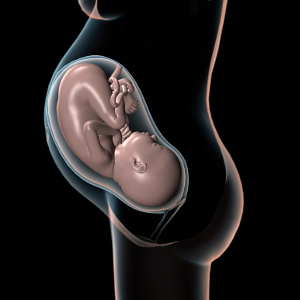 Iodine is involved in the body’s production of thyroid hormones, and we humans need plenty of iodine throughout life, especially during periods such as fetal development and child development. Iodine is also important for brain development and cognitive skills. Severe iodine deficiency during pregnancy and during a child’s first years of life may result in stunted growth and/or mental retardation, but there has been uncertainty about how a minor iodine deficiency affects the child before and after birth. In a review article that is published in Nutrients, the authors look closer at iodine’s role in fertility and child growth. Apparently, iodine deficiencies are quite common, and we even need selenium and other nutrients to secure a well-functioning thyroid gland.
Iodine is involved in the body’s production of thyroid hormones, and we humans need plenty of iodine throughout life, especially during periods such as fetal development and child development. Iodine is also important for brain development and cognitive skills. Severe iodine deficiency during pregnancy and during a child’s first years of life may result in stunted growth and/or mental retardation, but there has been uncertainty about how a minor iodine deficiency affects the child before and after birth. In a review article that is published in Nutrients, the authors look closer at iodine’s role in fertility and child growth. Apparently, iodine deficiencies are quite common, and we even need selenium and other nutrients to secure a well-functioning thyroid gland.







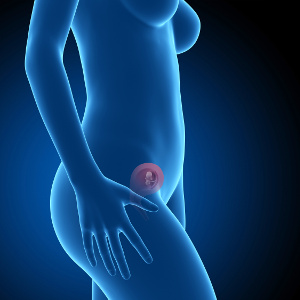 Around one in six pregnancies results in spontaneous abortion. Although there can be different reasons for this, scientists have found that eating a healthy diet with lots of vegetables, fruit, fish, shellfish, eggs, and grains can lower the risk by over 50 percent. This was shown in a meta-analysis from the University of Birmingham in England. Earlier research shows that selenium, a trace element that many people are deficient in, plays a particularly important role.
Around one in six pregnancies results in spontaneous abortion. Although there can be different reasons for this, scientists have found that eating a healthy diet with lots of vegetables, fruit, fish, shellfish, eggs, and grains can lower the risk by over 50 percent. This was shown in a meta-analysis from the University of Birmingham in England. Earlier research shows that selenium, a trace element that many people are deficient in, plays a particularly important role.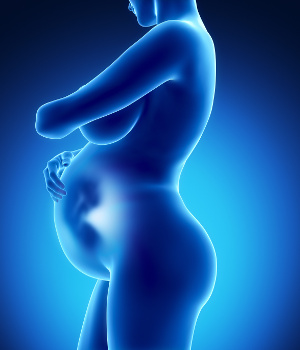 The need for the trace element
The need for the trace element 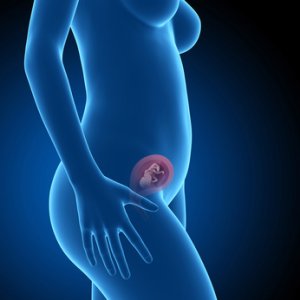 A team of scientists from Oregon State University in the United States has managed to explain why lack of
A team of scientists from Oregon State University in the United States has managed to explain why lack of 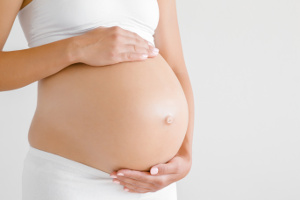 Congenital heart defects are the most common birth defect on a global scale. The condition is associated with a number of different complications and even comes with an increased risk of infant death. Maternal nutritional status is vital for the development of the fetus, and a team of Chinese scientists has looked closer at how
Congenital heart defects are the most common birth defect on a global scale. The condition is associated with a number of different complications and even comes with an increased risk of infant death. Maternal nutritional status is vital for the development of the fetus, and a team of Chinese scientists has looked closer at how  Global heating and the whole climate debate have greatly increased the number of vegans and vegetarians. Their intensions may be good, but what they do not know is that their lifestyle can lead to serious health problems. A Spanish study of vegetarians and vegans has shown that 11% of the study participants had subclinical or clinical vitamin B12 deficiency. Earlier studies supporting this finding. Because the problem is insidious, it is often difficult to see the link between the deficiency and the symptoms caused by anemia or disturbances in the nervous system. The lack of
Global heating and the whole climate debate have greatly increased the number of vegans and vegetarians. Their intensions may be good, but what they do not know is that their lifestyle can lead to serious health problems. A Spanish study of vegetarians and vegans has shown that 11% of the study participants had subclinical or clinical vitamin B12 deficiency. Earlier studies supporting this finding. Because the problem is insidious, it is often difficult to see the link between the deficiency and the symptoms caused by anemia or disturbances in the nervous system. The lack of 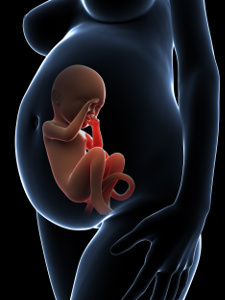 During pregnancy, the unborn child needs different nutrients for proper development of its brain and nervous system. Even if the mother eats a balanced diet, it can be difficult to get enough
During pregnancy, the unborn child needs different nutrients for proper development of its brain and nervous system. Even if the mother eats a balanced diet, it can be difficult to get enough 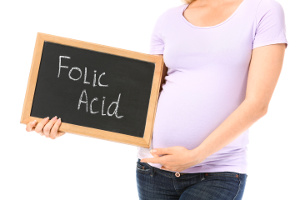
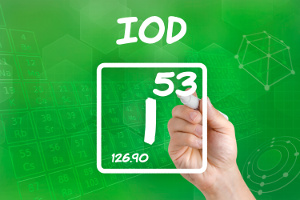 We humans are exposed to a host of toxic fluoride compounds from food packaging, cookie sheets, rain clothes, impregnation agents, tap water, toothpaste etc. Effective July 1., 2020, cardboard, parchment paper, and cookie sheets that contain fluoride compounds are banned in Denmark. Fluoride poisoning increases the risk of various thyroid disorders, breast cancer, kidney diseases, ADHD, and fetal damage. At the same time, it increases the need for
We humans are exposed to a host of toxic fluoride compounds from food packaging, cookie sheets, rain clothes, impregnation agents, tap water, toothpaste etc. Effective July 1., 2020, cardboard, parchment paper, and cookie sheets that contain fluoride compounds are banned in Denmark. Fluoride poisoning increases the risk of various thyroid disorders, breast cancer, kidney diseases, ADHD, and fetal damage. At the same time, it increases the need for 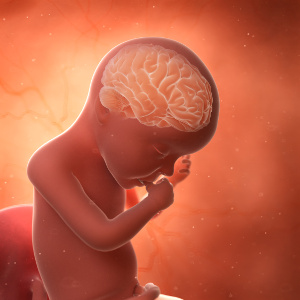
 "After about one week of taking the Q10 supplement I could feel a huge difference," says 23-year old Alan Piccini, who has been suffering from extreme fatigue and muscle aches ever since he was a child.
"After about one week of taking the Q10 supplement I could feel a huge difference," says 23-year old Alan Piccini, who has been suffering from extreme fatigue and muscle aches ever since he was a child. “Taking capsules with co-enzyme Q10 has freed me of the severe side effects of my cholesterol lowering medicine,” Mrs Franken explains.
“Taking capsules with co-enzyme Q10 has freed me of the severe side effects of my cholesterol lowering medicine,” Mrs Franken explains.